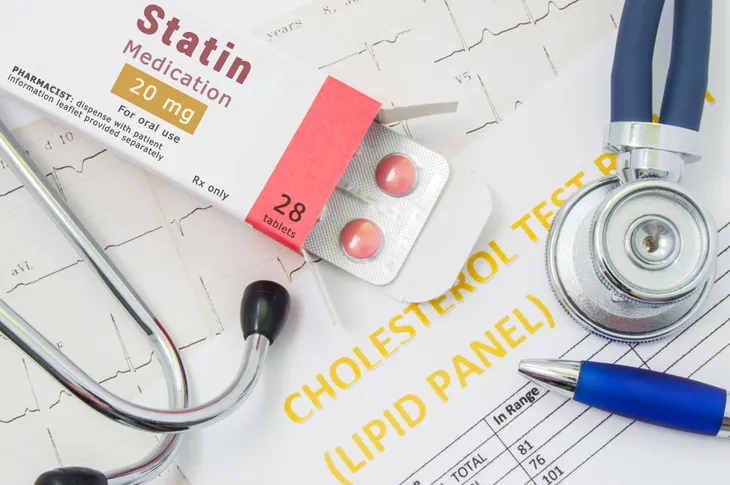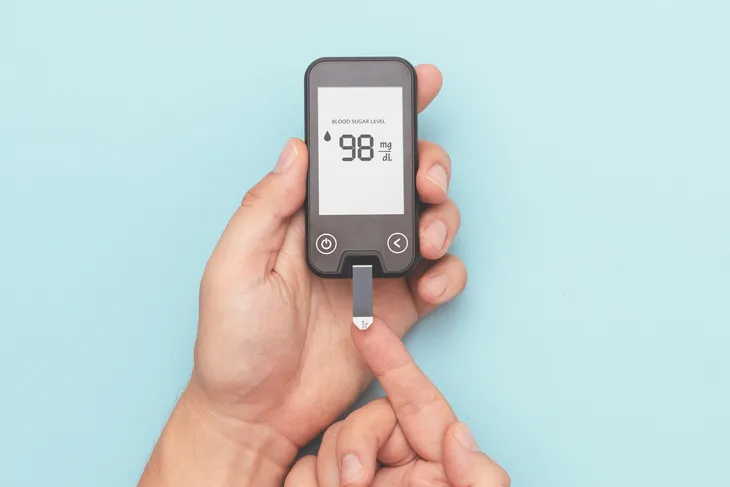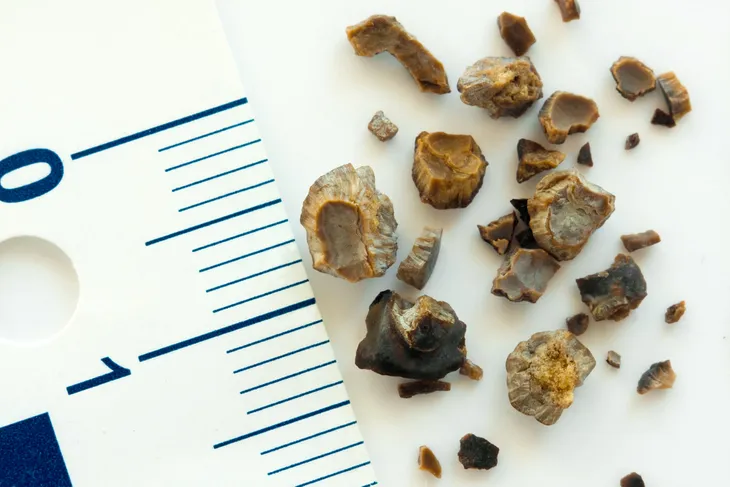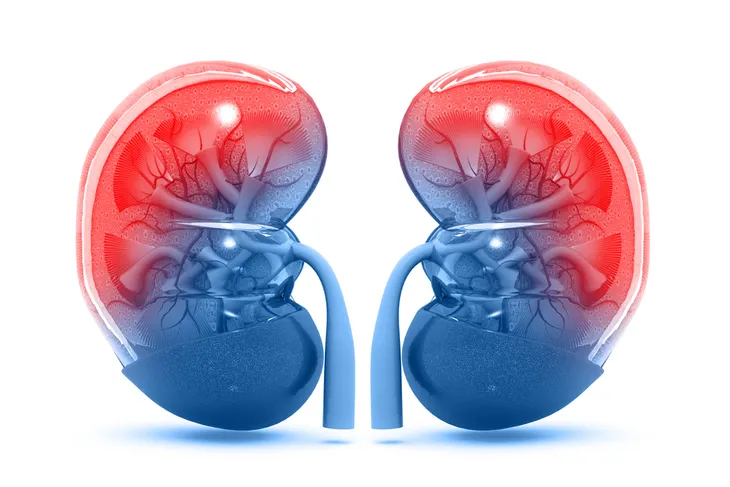Your kidneys are essential in removing waste from your bloodstream and forming urine. If they aren’t functioning properly, there can be major health impacts. Symptoms of kidney problems include weight loss, fatigue, nausea, and blood in the urine.
While WebMD says the cause of chronic kidney disease (CKD) isn’t always obvious, there are some underlying health risks that your doctor may be able to pinpoint causing the problem. Kidney disease as a whole affects about 14-percent of the American population. Six top causes of CKD are…
1. Diabetes
WebMD explains that the high blood sugar levels associated with diabetes could be a culprit when it comes to CKD. It notes that these high levels of blood sugar can damage the blood vessels in the kidneys.
It’s important to manage your diabetes, as continuously increased blood sugar can gradually reduce the function of your kidneys over a period of many years. Even without the risk of kidney damage, taking control of diabetes is important for your overall health.
2. Hypertension
Hypertension is also referred to as high blood pressure. The Kidney Foundation of Canada says it’s a double-edged sword — hypertension can cause kidney problems and kidney disease can, in turn, lead to hypertension.
You might not even realize that you have high blood pressure, which is why it’s a good idea to ensure your doctor checks it during routine visits, especially if you have a family history of high blood pressure or you’re considered overweight. Individuals ages 50 and up should also monitor their blood pressure at least once a year, usually during a yearly physical examination.
3. Urinary Tract Obstruction
There are a number of reasons you may have a blockage in your urinary tract including kidney stones, an enlarged prostate (in men), and even some cancers, according to the Mayo Clinic. You may already have some symptoms of these other problems, but prolonged obstruction of the urinary tract can lead to CKD.
Kidney stones in particular can be very painful and cause you to pass blood in your urine. It can also lead to frequent urination, which is another sign of chronic kidney disease. It’s important to let your doctor sort out these problems.
4. High Cholesterol
Your doctor or dietitian is probably always on your case about watching your cholesterol intake, and for good reasons. One of them is that the fatty deposits from “bad” cholesterol can build up in blood vessels that supply the kidneys, making it more difficult for your kidneys to function properly, according to the United Kingdom’s National Health Service (NHS).
The NHS explains that, while cholesterol is made by your liver and is vital to your overall health, there are some sources from food to avoid. You won’t necessarily have any symptoms of high cholesterol until you get a related problem, which can also include a heart attack or stroke.
 Photo Credit: Shidlovski / Shutterstock.com
Photo Credit: Shidlovski / Shutterstock.com5. Certain Medications
There are some medicines that should be taken with precaution if you already have been diagnosed with kidney problems, while others can lead to kidney trouble. For example, Nonsteroidal anti-inflammatory drugs (NSAIDs), which are commonly available over-the-counter (OTC) for pain relief (e.g., ibuprofen [Advil] or acetaminophen [Tylenol]), can increase the risk of sudden kidney failure and progressive kidney damage, according to the National Kidney Foundation.
The site notes you shouldn’t use these OTC versions for more than 10-days to treat pain (and no more than 3-days for fever). It also suggests increasing the amount of fluids you’re drinking to 6 to 8-glasses per day if you’re taking these medications. Other drugs that can affect the kidneys include alcohol, antibiotics, prescription laxatives, and street drugs.
6. Medullary Sponge Kidney
Medullary sponge kidney is a birth defect also known as Cacchi-Ricci disease that can lead to CKD, although only in rare cases, according to the National Institute of Diabetes and Digestive and Kidney Diseases.
This birth defect affects the tubes in a kidney, creating cysts (that have a sponge-like appearance) during fetal development. Although the condition is present from birth, patients don’t usually notice symptoms until their teenage years.








